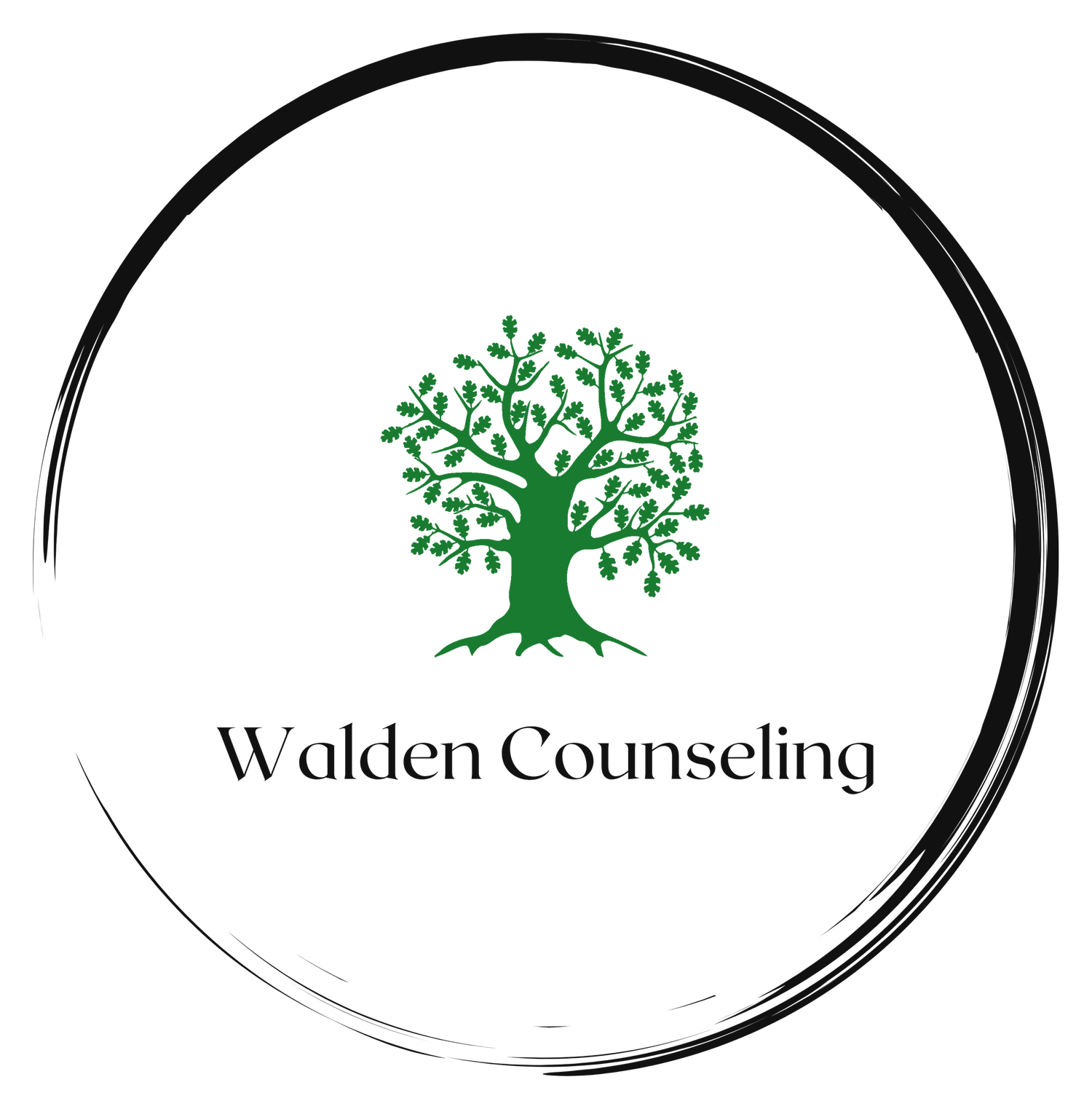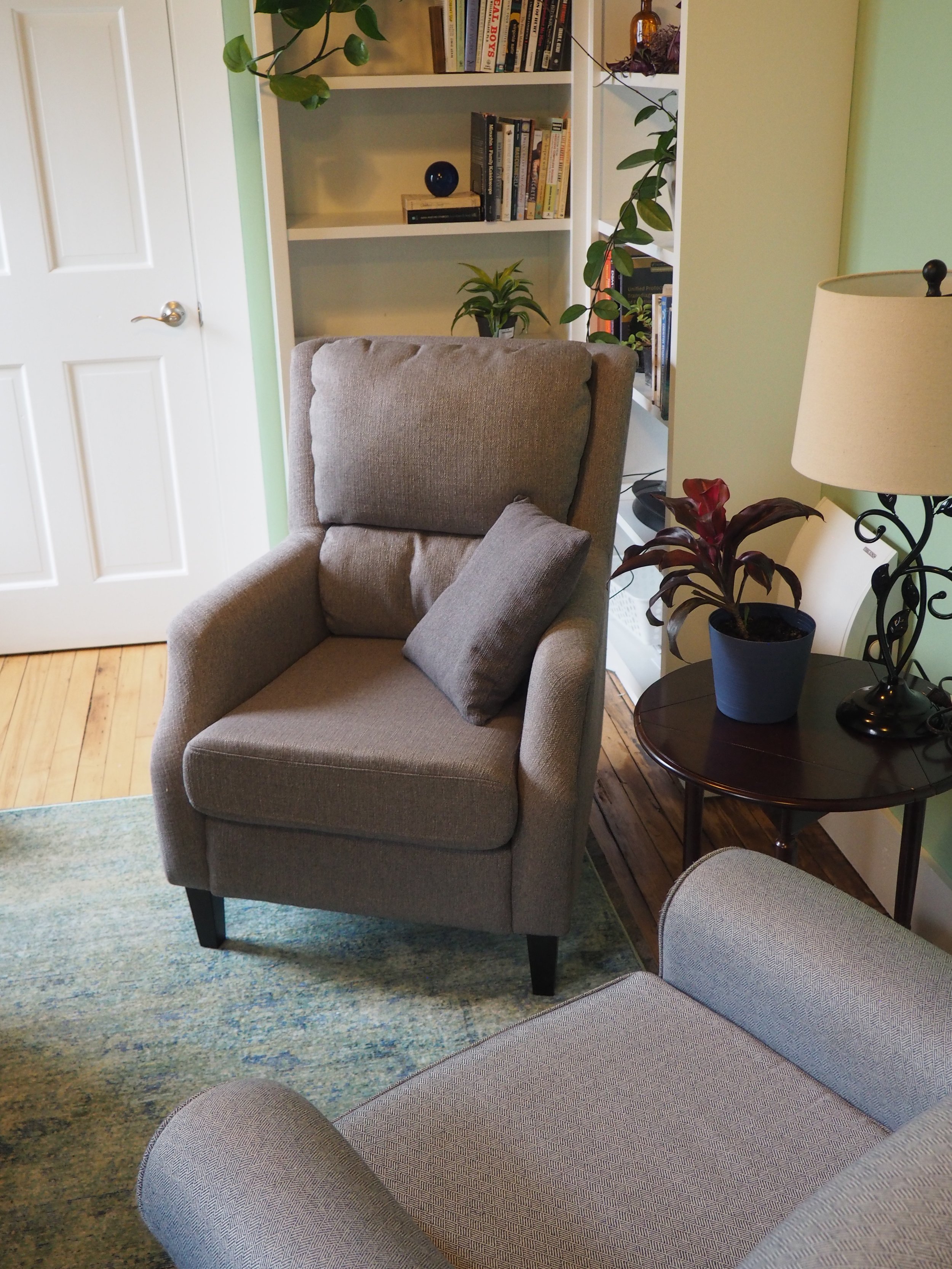
wHAT i DO AS A COUPLES COUNSELOR
FIND WHAT’S WORKING & WHAT’S NOT
The first part of our work will be to assess and better understand what's going on in your relationship. By identifying the things that the two of you struggle with, we will know where to concentrate our work, and how to understand what goes wrong when the two of you try to communicate and problem solve. By identifying the strengths you have as a couple, we'll know what you can lean on as you create change.
A SAFE PLACE TO CONNECT
The most important thing I provide as a couples counselor is a safe place to start exploring change. Couples often come to counseling having felt hurt in their previous attempts to deal with their issues. In other cases, couples have just stopped talking about the tough issues. Rather than continue to stay quiet, or hurt each other, our first steps will be to learn to communicate carefully, intentionally, and productively.
CREATE A PLAN FOR CHANGE
Couples come to counseling with the desire to do things differently. When we understand where things are going wrong, and have created a space to safely come together to work on it, we will then establish the plan for change. My goal will be to help you to understand each other, and to learn and practice the skills to connect and problem solve in a healthier way. We will move from the three of us working together in the couples counseling session, to the two of you working together outside of session to bring about the change you want as a couple.
wHO DO i WORK wITH?
I work with couples who are unsure of how to move forward, who are struggling to connect and communicate, but who want to work on the relationship. In my experience, couples come to counseling when they feel stuck. There are conflicts and conversations they are having over and over, or which they have just started avoiding because they are too painful or go nowhere. Folks who are looking for better ways to communicate, because they are not feeling heard by their partner.
Couples counseling does not need to be a last-ditch effort. I like to work with couples who are anticipating or experiencing tough transitions in life and want to turn toward each other and learn how to support each other. I particularly enjoy working with new parents to learn about how their relationship will change as their lives and identities change.
Specifically, I work with couples who want and are able to meet in-person at my Brunswick office; couples who are able to put in weekly work both inside and outside of session, and attend 75-minute weekly sessions to begin our work together. I do not work with insurance companies for couples counseling, so being able to afford my self-pay rate is a requirement also.
FAQs
-
I am informed by and trained in two complementary approaches to couples counseling -- the Gottman method, and Emotion-Focused Therapy. The Gottman method is based on decades of research on relationships. It finds that to improve the health and longevity of a relationship our goal should be to improve communication, intimacy, and trust. To do that, we will use proven methods to deal constructively with conflict.
In that process, we will find that the emotions that are evoked by conflict, problem-solving, and each other will be both tools and obstacles. We will spend time paying attention to and communicating what is happening inside. Truly understanding yourselves, each other, and your relationship will be necessary to make the changes you want to see.
-
Couples counseling sessions last up to 75 minutes, in order to guarantee time to hear from both of you. I meet with couples weekly to begin - later in the process it is sometimes appropriate to meet less frequently.
When we first connect and meet I will describe the structure of the work, but it will start with four initial sessions. During those four weeks I will meet with both of you together but also meet each of you for an individual session so that I can get to know you each as individuals. After those four weeks of assessment we will have a picture of how I would work with you, and can decide whether moving forward feels right.
-
I meet with all my couples in-person in my Brunswick office. I find that it brings extra connection, clarity, and safety to meet in-person.
-
I understand that health insurance is often the most economical, or only, way to access counseling, and I bill to insurance for individual clients because of that. However, with couples, I have chosen not to bill to insurance, including out-of-network billing, because of the many obstacles insurance companies have created. These obstacles make it very challenging to provide ethical and sustainable couples counseling within their system.
-
There are many couples counselors who have found ways to work with the insurance system that they are comfortable with. I recognize that for many couples, they must use their insurance benefits, so I am always happy to help refer couples to counselors who can bill to their insurance.
-
Part of what makes therapy different from usual conversation is that it is a place where we talk about what we’re talking about. If you ever wonder why we are doing something, or not doing something, you can feel free to speak up. It is always appropriate for you to let me know if you are displeased, confused, or dissatisfied with what we are doing. The ensuing conversation is likely to be very useful for us all.
Checking our progress and changing direction are all normal parts of the counseling process. However, you should also always feel free to end counseling if either of you feel it is not working for you. I can help refer you to another professional who might better suit what you are looking for, or match you to other resources.
-
When you speak with a professional counselor, the privacy of our discussions is legally and ethically protected. I will never share them with anyone without your written consent. I will keep any records of our work secure and private, and communicate with you outside of session only in a confidential manner. Even the fact that we are working together is protected information that I would never reveal to others.
There are only a few legal and ethical exceptions to your confidentiality. Before we begin work, we will discuss those exceptions.
-
Counseling can be very important when the couple is going through a challenging time such as an emotional conflict or responding to infidelity. It can also be useful when the couple is confronting a transition such as moving in together, marriage, parenthood. Attending couples counseling simply to learn relationship skills and increase communication is also impactful for many couples.
However, it’s not always the right time to engage in couples counseling. Part of our initial assessment will be to determine if there are any issues which should be attended to first before couples counseling should begin.
-
Couples counseling will not be an instant cure for everything that is hard or painful right now. It is a tool which can allow you to address those hard and painful things, in a safe, compassionate way. What you can expect from the counseling process has a lot to do with what the two of you put into it. We will discuss new perspectives and skills that will need to be practiced and used outside of session. The couples that report the most impact from couples counseling are the ones who take the opportunity that it provides, are willing to do hard work in and out of session, both individually and together, and are motivated to see change. Some changes may come quickly in our work together, others will take time, effort, and practice.


